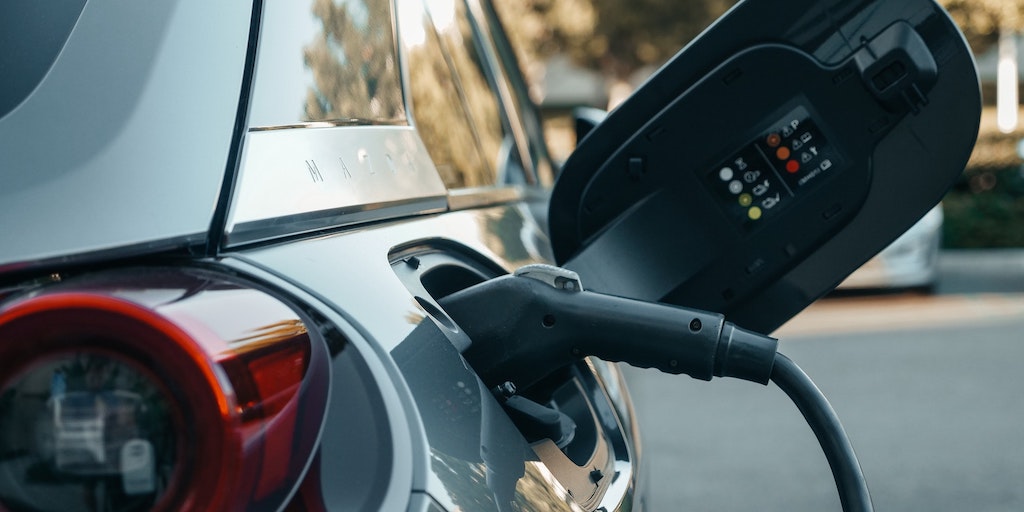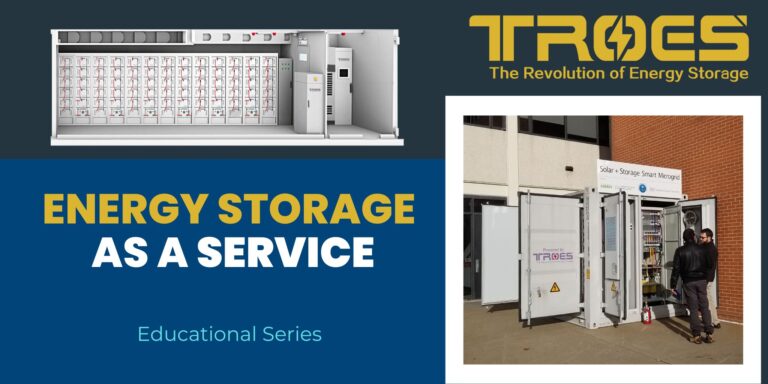How TROES is Proactively Managing the Battery Shortage

Energy storage is a driving factor in helping reduce greenhouse gas (GHG) emissions and create a net-zero world. The industry has seen exponential growth as companies are incorporating battery energy storage, creating a billion-dollar annual industry. EVs (electric vehicles) also continue to grow year over year with a compound annual growth rate of 63% surpassing many automakers and even President Biden’s call for 50% of vehicle sales to be electric by 2030. These statistics show real promise for consumers and companies striving for a net-zero world, are there enough batteries to meet demand?
As the energy storage industry grows in popularity, the demand for batteries continues to grow by 30 percent year-to-year. Batteries such as Lithium-ion are a crucial component in powering laptops, phones, tablets, EVs, energy storage and more. Without Lithium-ion batteries, the transition to a net-zero world is significantly more difficult.
The battery shortage largely originates from the limited amounts of metal available on a global scale. As demand for lithium batteries continues to rise, the international supply of metal has shown an inability to keep up. The United States outsources 90% of lithium from Argentina and Chile and only provides less than 1% of the world’s production for nickel and cobalt. The sourcing issue is pushing western countries to create new mines – competing with metal production powerhouses such as China. Lithium is produced through hard rock, brine mines, and salt lakes with majority of the lithium being sourced from Australia, Chile, and China. More countries will need to take initiative in metal mining to help increase supply.
The Effects a Battery Shortage Has on the World
The battery shortage has led to notable delays for many energy storage-based projects. The U.S. utilities and independent developers were only able to complete 57% of their planned energy storage additions due to the shortage, demonstrating the importance of lithium-ion. This is a major obstacle as Jigar Shah, the director of the DOE’s Loan Programs Office explained, “[there’s] been a lot of work at the [U.S.] Department of Energy that shows that battery storage will be critical to the president’s goal around decarbonizing the grid by 2035”.
A major initiative that saw recent headlines earlier this month was the White House’s announcement to provide funding to combat battery shortage in America. The $3.16 billion from the enacted Bipartisan Infrastructure Law hopes to help domestic manufacturers produce more batteries in the U.S.
The battery shortage is also causing issues in the EV industry. Many automotive companies are experiencing slow production due to the unavailability of key resources. This has caused delays in manufacturing their lineup of EV vehicles and must wait until the required resources are available. With expectations of EV vehicles acquiring a majority of the automotive industry post-2030, companies must come up with unique initiatives to help curb current demand.
Looking into the Future
In order to stay competitive, companies are seeking creative ways to minimize the impact of the battery shortage. In the last few years, the costs of batteries have significantly increased. TROES, a Canadian battery energy storage systems company minimized battery supply issues through different supply chains. TROES’ MiControlTM and MiGridTM technology paired with modular designs for enclosures enable TROES to use a variety of battery cell vendors, thus, increasing available capacity, providing flexibility to the supply chain, and offering the best system pricing. TROES’ MiControlTM technology specifically enables a battery energy storage system to be compatible with different battery designs.
In the future, TROES’ Microgrid software technology will enable seamless compatibility with nearly all battery designs, minimizing the impact of battery shortages in the future. As the shortage continues to affect more energy-based businesses, companies will be required to take creative measures like TROES, to remain competitive.
About TROES Corp.
TROES is based in Markham, Ontario, Canada and is made up of a group of experienced experts in the Energy domain. By using our patented modularized energy storage hardware and software, we help unlock numerous project opportunities with considerable payback for middle-market project developers, power distributors, and power consumers.
Follow us on LinkedIn and stay connected on our website to learn more about TROES’ advanced Battery Energy Storage Systems, its proprietary technology, the various applications and its benefits and advantages over other competitive systems.
Contact:
For all inquiries regarding TROES Corp. please contact:
John Manalis, MBA
Sr. Marketing Manager
+1 416-508-0169
j.manalis@troescorp.com






